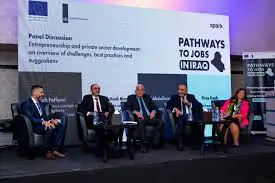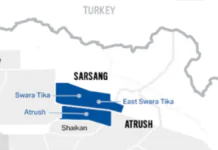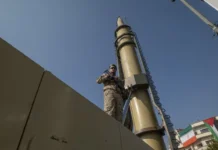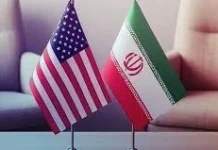In Iraq, where uncertainty and economic pressures shape daily life, a quiet transformation is taking place in classrooms and workshops across the country. Students are turning away from traditional lecture halls and embracing vocational education, a system once overlooked but now viewed as a direct route to independence, purpose, and opportunity.
A Quantitative Shift in Learning
According to the Ministry of Education, out of 7.6 million students in pre-university education, around 280,000 are now enrolled in vocational schools—a network of more than 320 institutions spread throughout Iraq.
By comparison, Iraqi universities host over 1.3 million students across 35 public and 45 private universities and colleges. Yet, university enrollment has been declining steadily over the past five years, while vocational school enrollment has surged by 37% during the same period.
The trend reflects a pragmatic shift in a country where overall unemployment exceeds 15% and youth unemployment approaches 28%. For many young Iraqis, vocational education represents a realistic bridge between school and the job market—a path that offers immediate skills and tangible employment prospects.
Practical and Affordable
University degrees in Iraq often require years of study and can cost millions of dinars annually, especially at private institutions. By contrast, vocational programs typically cost no more than 300,000 dinars ($204) per year and provide hands-on training in workshops, laboratories, and factories.
However, the growing demand for technical education faces serious challenges—outdated buildings, limited workshop capacity, and weak infrastructure remain widespread. The absence of a comprehensive national development plan for vocational education has further slowed reform.
Baghdad leads with 70 vocational schools, followed by Basra (35) and Nineveh (30). Yet, several provinces—such as Diyala and Muthanna—struggle with severe shortages in facilities and qualified staff.
Deputy Chair of the Parliamentary Education Committee Nadia Mohammed Al-Aboudi called for urgent reforms to address these gaps. “Comprehensive vocational schools for both males and females should be built across all regions, with adequate classrooms and modern laboratories to support technical specialties,” she said, noting recent improvements in Basra following administrative restructuring and oversight reforms.
Capacity and Curriculum Gaps
With student interest climbing, many vocational schools have begun operating double shifts—morning and evening—to handle the surge, according to Mohammed Qutaiba Al-Bayati, a member of the Parliamentary Higher Education Committee.
Iraq’s technical institutes now offer more than 70 specializations, spanning industrial, agricultural, commercial, and hospitality fields—from electronics and medical device maintenance to automotive technology and hotel management.
The attraction is clear: graduates of vocational schools increasingly find jobs or gain university admission, particularly in engineering, cybersecurity, oil refining, and applied technology programs at private universities.
Parental attitudes are changing as well. In Baghdad, Basra, and Dhi Qar, families are actively encouraging their children to pursue vocational training as a faster, more practical route to employment. Students, too, are recognizing the benefits—seeing workshops and technical labs not as a fallback, but as a launchpad for their careers.
According to data from the Ministry of Labor, more than 45% of new private-sector jobs created between 2022 and 2025 were filled by vocational certificate holders or technical institute graduates—a strong indicator that Iraq’s job market is now valuing skills and technical proficiency over formal degrees alone.
Global Partnerships Fueling Reform
Despite these gains, Iraq’s vocational sector still requires modernization and investment. Recognizing this, UNESCO and the European Union launched the Green and Digital Technical and Vocational Education and Training (TVET) project on August 10, 2025, in partnership with the Iraqi government. The initiative aims to align technical curricula with green economy and digital transformation priorities, ensuring that Iraq’s young workforce is prepared for a changing job landscape.
This builds on earlier international collaborations. In May 2024, UNESCO and the EU introduced the TVET 2 Reform Project, which focuses on linking vocational education directly with employment opportunities and industry demand.
UNESCO-UNEVOC has emphasized that these programs are part of Iraq’s National Strategy for Technical and Vocational Education and Training (2022–2031)—a roadmap to modernize vocational instruction, upgrade infrastructure, and create sustainable employment opportunities for Iraqi youth.
Domestic Initiatives and Private Support
Domestically, the Ministry of Education, together with the Ministries of Labor and Industry, launched the Integrated Vocational Pathway Initiative in 2024. The program focuses on curriculum development and practical factory-based training.
Meanwhile, the Ministry of Higher Education introduced a teacher training initiative in partnership with technical universities, reaching over 800 instructors nationwide. The program’s goal: to modernize teaching methods and strengthen practical skill delivery in vocational classrooms.
Private and regional partnerships are also playing a critical role. In Basra, oil companies have begun providing modern laboratories and industrial equipment to vocational schools in coordination with local authorities. In Baghdad and Nineveh, five new vocational training centers were recently inaugurated under the Education for Employment Project, funded by Germany’s GIZ and the European Union, collectively serving up to 10,000 students per year.
The Road Ahead
Across Iraq, a growing realization is taking root: practical skills open real doors. As more students choose workshops over lecture halls, vocational education is steadily transforming from a secondary option into a pillar of Iraq’s economic recovery.
This movement is not merely about filling jobs—it’s about reshaping what success looks like for a new generation. Technical and applied specializations are becoming the foundation of youth empowerment, offering autonomy, dignity, and a pathway to stability in a labor market that demands hands-on expertise.





